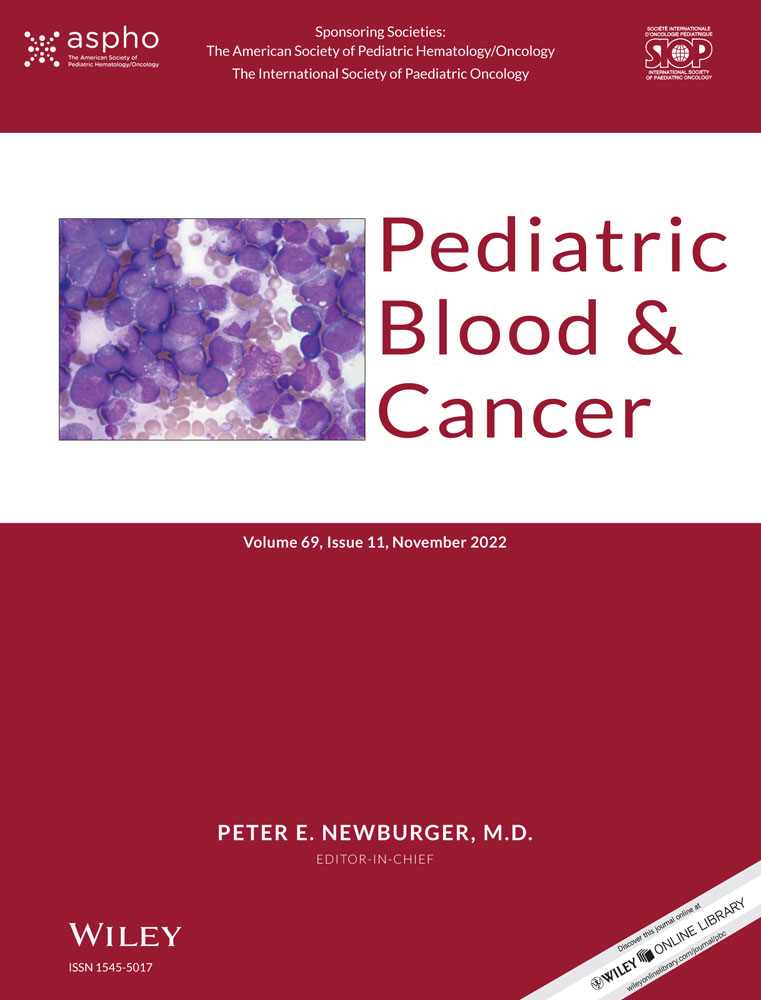Neurocognitive functioning in children with sickle cell anemia and history of abnormal transcranial doppler ultrasonography
Andrew M. Heitzer and Jane S. Hankins share co-senior authorship.
Abstract
Background
Transcranial doppler (TCD) ultrasonography can be used to identify stroke risk in children with sickle cell anemia. Previous studies have reported mixed findings on neurocognitive outcomes in children with elevated TCD. This study examined associations between TCD velocity and neurocognitive outcomes in children and adolescents without prior history of stroke.
Procedure
Participants were selected from the Sickle Cell Clinical Research Intervention Program cohort. The highest recorded mean maximum TCD velocity was selected for analysis, along with participant's most recent data from serial neurocognitive surveillance.
Results
A total of 200 children with sickle cell anemia completed neurocognitive testing (109 males, 91 females; mean age 12.7 years [SD = 3.56]). Most participants were prescribed hydroxyurea (72%) at the time of neurocognitive testing and nearly 16% had a history of chronic transfusions prior to neurocognitive evaluation. Mean age at time of highest TCD value was 6.6 years (SD = 2.5) and 13.5% of screenings were abnormal (≥200 cm/s). Mean interval between TCD and most recent neurocognitive evaluation was 6.1 years (±3.5). There were no significant differences in the interval between TCD and neurocognitive testing across normal, conditional, and abnormal groups. Maximum TCD velocity was not significantly associated with neurocognitive outcomes in multivariate models.
Conclusions
History of elevated TCD in the absence of overt stroke should not be considered a risk factor for poor neurocognitive outcomes in children and adolescents with sickle cell anemia on modern disease-modifying therapy.
CONFLICT OF INTEREST
A. A. K. receives research funding from Global Blood Therapeutics. J. S. H. receives consultancy fees from Global Blood Therapeutics, VForma Therapeutics, UpToDate, and bluebird bio. A. M. H. receives consultancy fees from Global Blood Therapeutics. There are no other conflicts of interest to report.
Open Research
DATA AVAILABILITY STATEMENT
The data that support the findings of this study are available from the corresponding author upon reasonable request.




